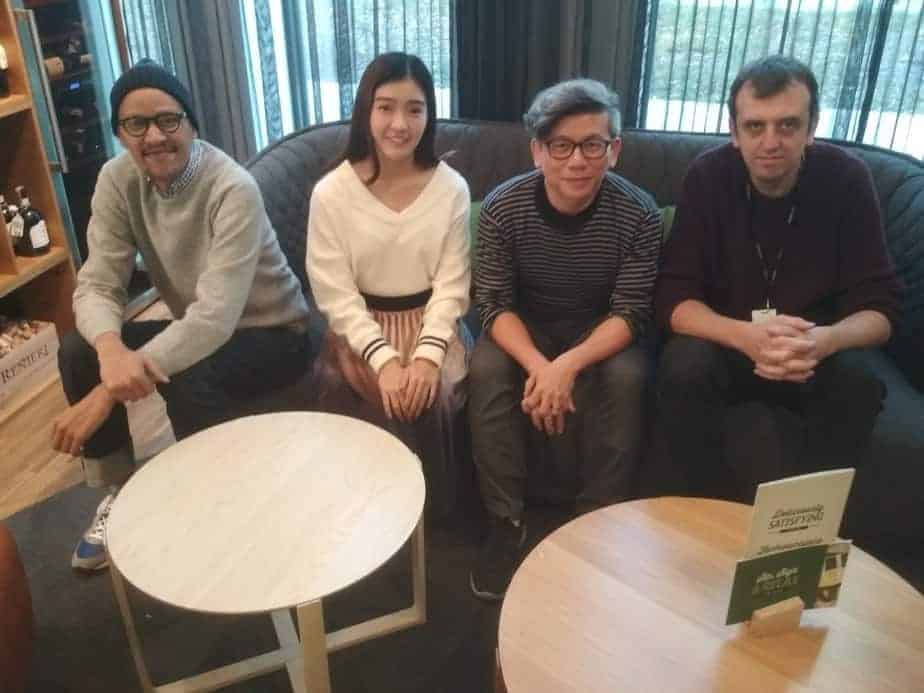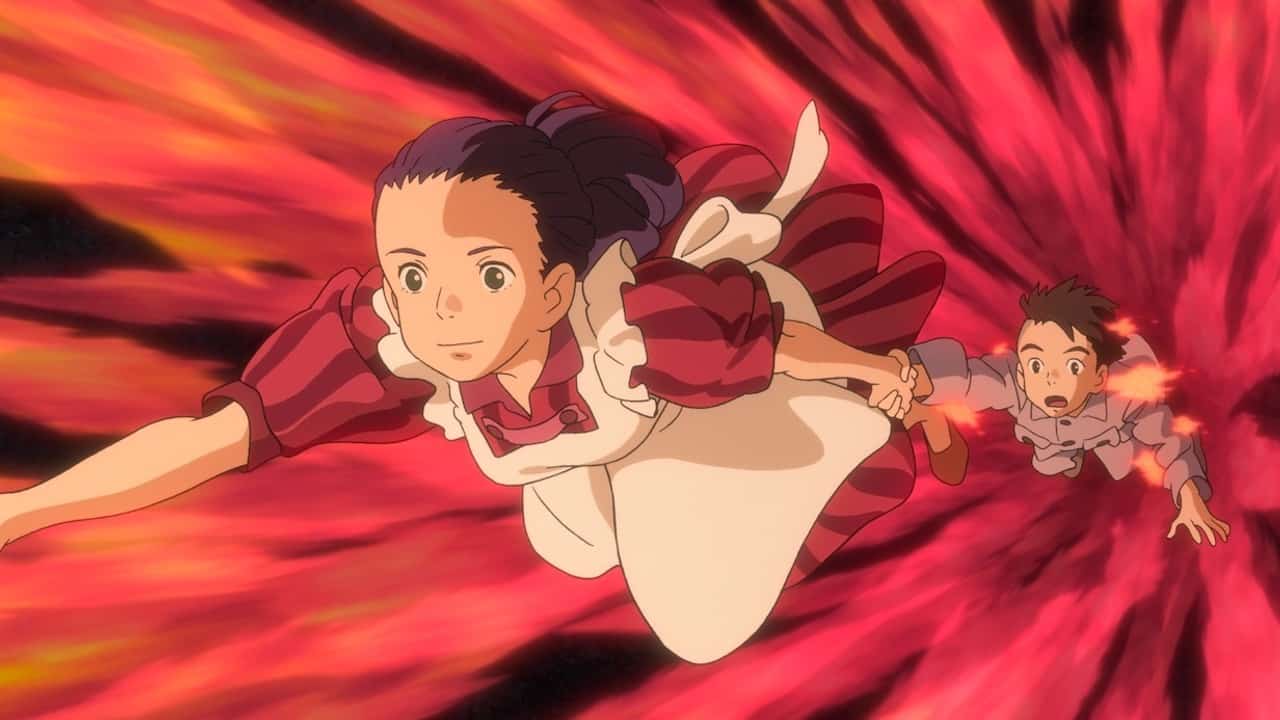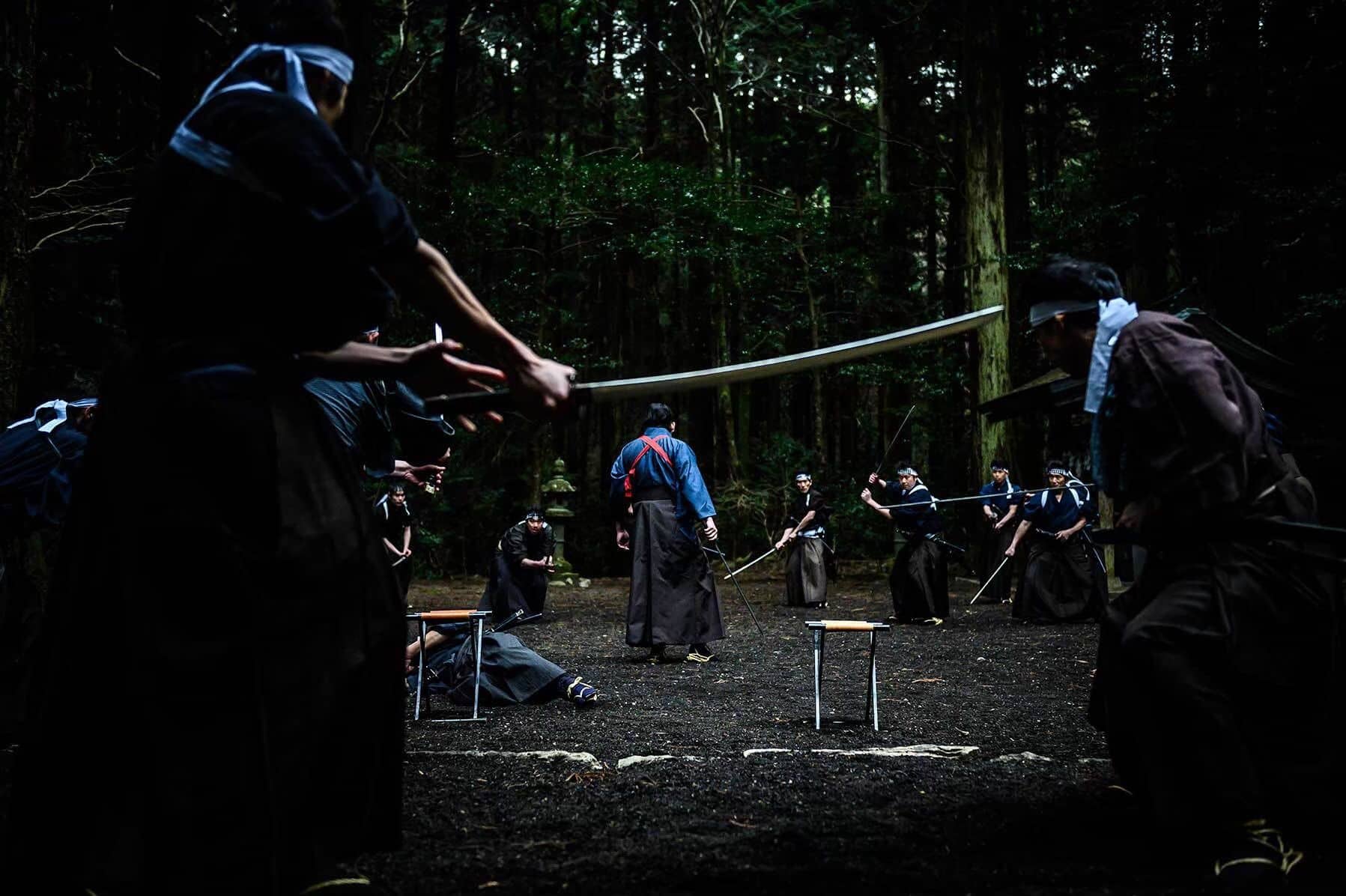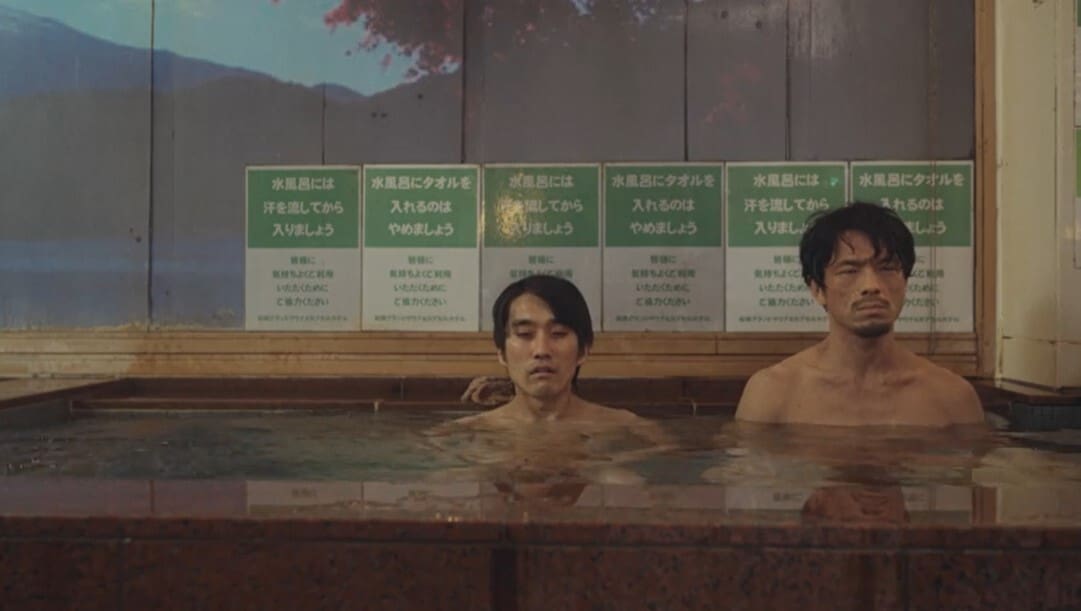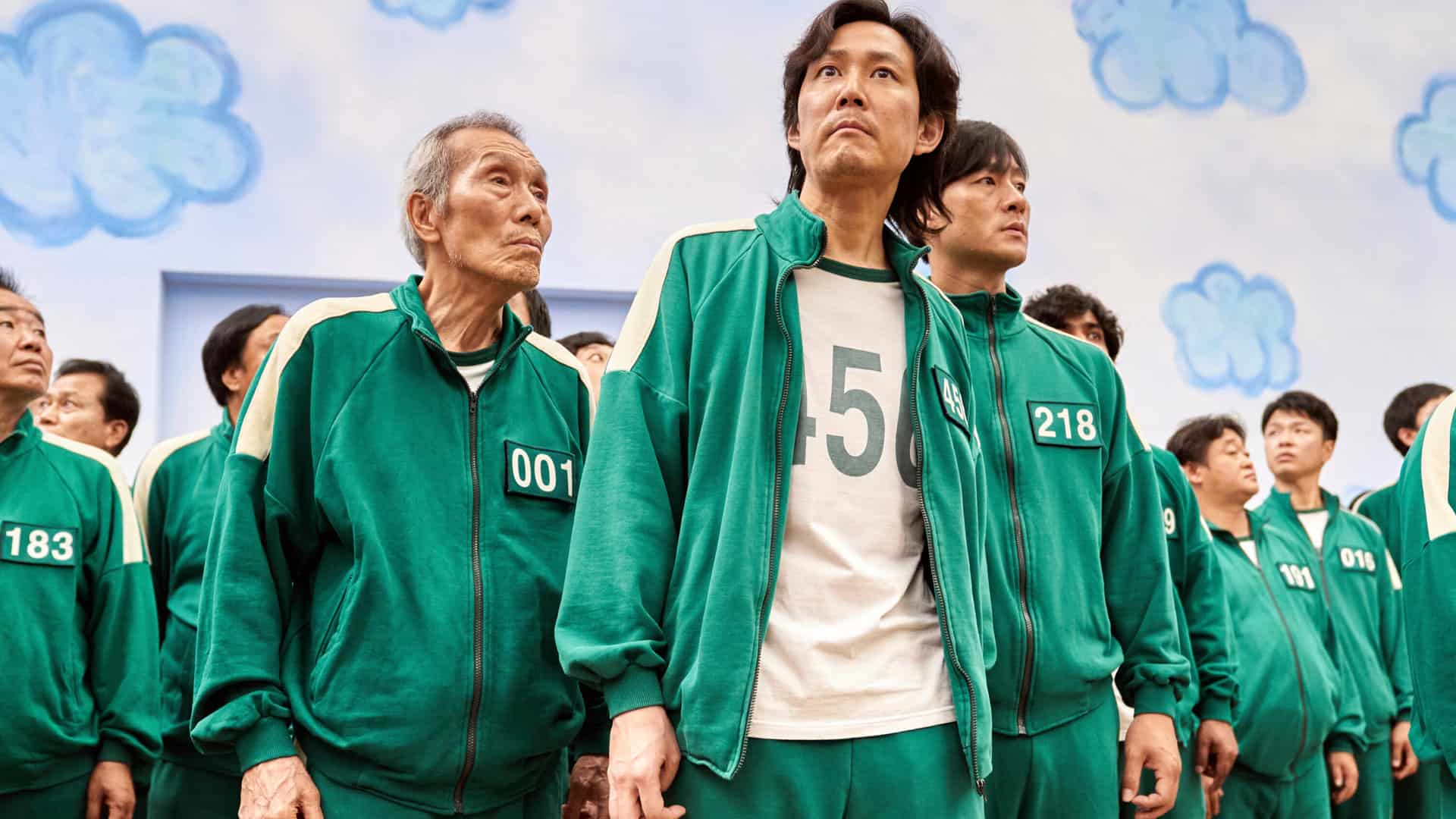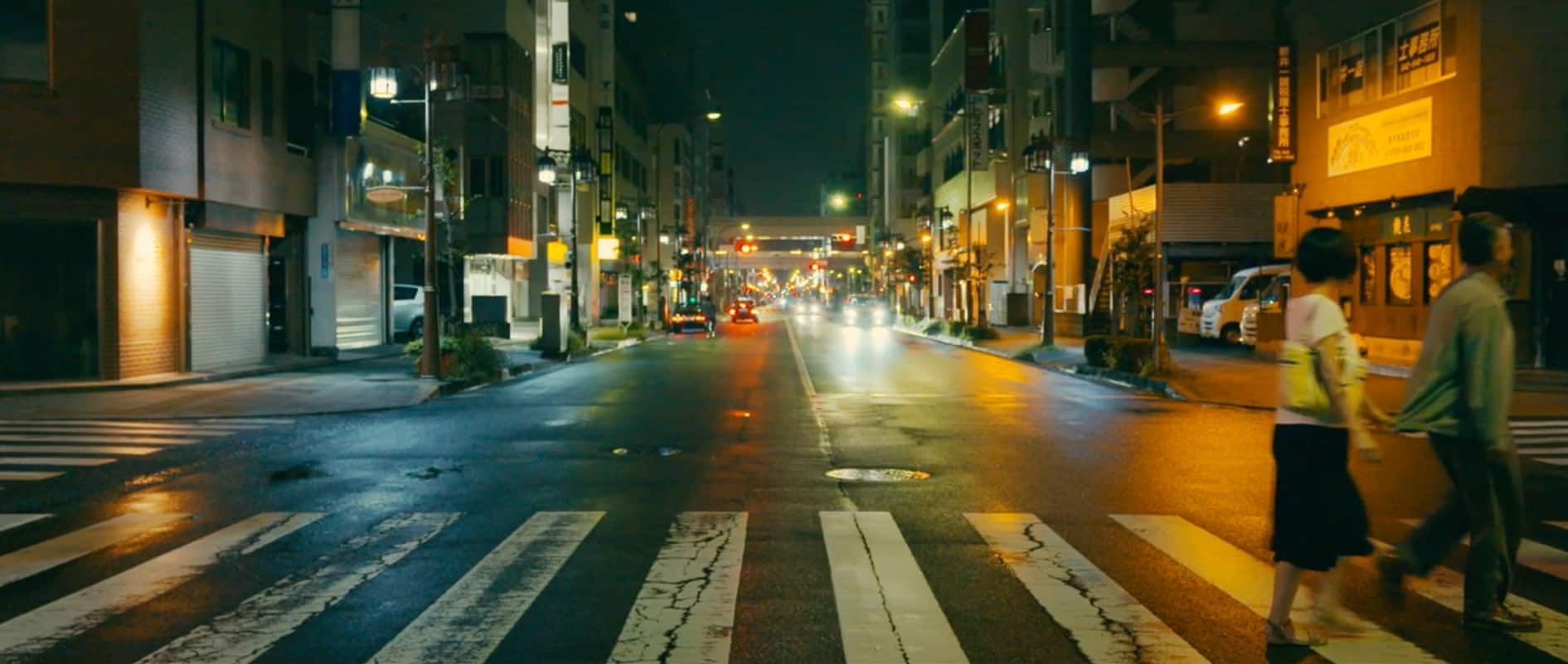Kongdej Jaturanrasamee completed film studies at King Mongkut Institute of Technology. A director and screenwriter, who worked also as a teacher, copywriter and restaurant owner. Appreciated for psychological sensibility and the ability to transfer ephemeral emotional states into the screen. His films were presented and awarded at numerous international festivals, In 2012 received the Grand Prix at Five Flavours for “P-047”.
Jennis Oprasert was born in 2000, singer and actress. She belongs to the supergroup of idols BNK48, she was in the first line-up of the band founded in 2017. At the age of eight she acted in the horror film “The 8th Day”, for which she was nominated for the Suphannahong National Film Awards. For her leading role in Kongdej Jaturanrasamee's “Where We Belong” she received the Marie Claire Asia Award for emerging talent.
Soros Sukhum was born in Bangkok, graduate of film production at the Faculty of Communication Arts of the University of Rangsit. He began his professional career by working in all areas of film production. This period coincided with the emergence of a new generation of independent filmmakers and within a few years Soros became a leading independent producer in Thailand, collaborating with directors such as Aditya Assarat, Apichatpong Weerasethakul, Anocha Suwichakornpong and Kongdej Jaturanrasamee.
On the occasion of “Where We Belong” screening at Five Flavours, we talked to them about BNK48, living in Thailand, casting idols, education, the local movie industry, and other topics.

Can you tell us about how life in BNK48 is?
Jennis Oprasert: I have been in BNK48 for almost three years and I am getting used to the system and rules more and more every day. I am really happy I found what I want to do in the future and doing it already. High school students usually do not know what they want to do in the future regarding their occupation. I love my job, being an idol, dancing and singing and I am happy with my life today. It is maybe tough because you have many rules to follow but it is also fun. Everyday has some exciting news or some surprises on the occasion of work, which the management takes care of, not to let the job become boring. We have a different routine every day.
Ηow popular are they in the country right now?
Jennis: Super popular. After our second single, our popularity skyrocketed, now it has toned down a bit, but we are still number one among idol groups.
Do you enjoy acting as much as being an idol?
Jennis: I acted when I was seven and I knew I wanted to be an actress in the future. And now that I have started all over again, I realized I still love acting. So, maybe when I graduate from BNK48, I will be an actress.
If you were to choose between being an idol and an actress, what would your choice be?
Jennis: For now, I could not choose, they are very different things.
I feel that the two protagonists represent two categories of Thai people: the ones who want to leave, and the ones who want but cannot. Is that the reality of Thailand at the moment?
Kongdej Jaturanrasamee: Yes. Nowadays the youths think that what the politicians and the grownups in general are doing is too unsettling and they speak about it “loudly” in the social networks. We have a generation conflict because the older ones usually say, “if you do not like Thailand, why don't you just get out?”. But the younger generation wants to speak about this, because they think it should be much better than this. In essence, the youths want to have more choices in their lives but I think, in this movie the question is “can we own our life completely?” because we all have some issues to take care of. So the answer the film gives is a negative one and I wanted to show that each character has chosen their life in a different way, not only the two protagonists, but also their parents, grandmother etc.
Would you say that the majority of young people want to leave the country?
Kongdej: They speak so much about it on social media, actually some of my inspiration came from my twin daughters, who are 15 years old and they have so many questions about the country. “Why did we become like this, why do politicians act the way we do, why do we have so much corruption? “ There is Greta Thunberg now, who speaks about global warming and there are so many people who hate her. I think the younger generation at the moment feel like they want a better world and they want to live in a place that is better.
Do you also want to leave, and go to the US for example?
Jennis: Most girls my age want to go and study in universities abroad, because they want to find something better, better education system, better environment because everything should be better and improved but the previous generation deny to make any changes. They built everything for us today, but we just want them to understand that we just want some improvements and everyone should help to do so, but they do not agree.
Kongdej: I think that our education system has kind of failed, that is why even myself and my family decided to take our kids off school and have them home schooled the last two years. My kids feel like they are not just Thai kids, but also part of the global population. The world is getting closer and closer and if they want a better opportunity, they will get it. Jenis and most BNK48 members feel this because there are so many rules and they struggle. Even if the band management can make it better, they won't, so there are so many band members they want to escape, graduate from the group.

What is so bad about the education system?
Jannis: There is a lack of good teachers, because their salary is not that good and people do not want to become teachers.
Kongdej: A lot of them decide to teach less in school and become private tutors, to get more money. That is why the system has failed, because all good teachers go to private tutoring schools.
Are there many foreign teachers in the country, like the one in the film?
Jennis: Yes, a lot, but because of the system, they still have to use the same books and the same lessons, so their lessons also become simple again, and we end up staying still than moving forward.
I was talking to some people from Singapore, and they told me that if you know proper English there, you are considered higher class. Is that the case in Thailand also?
Jannis: Yes, if you know English you get a better job, you can get easier into bigger companies if you speak English.
Soros: However, I feel that most Thai people do not speak English very well.
But do they teach English in school?
Jannis: Yes, since kindergarten, but people cannot speak, because the system is so bad.
Kongdej: That is why in the movie Sue is very good in English, but when she needs to study in the university, she still has to get better, because her sentences are so simple. That is kind of a satirical point.

The protagonist's will to leave makes everyone around her sad. Do you feel though, that this is what it takes for someone to move on?
Kongdej: Actually I think that Sue is kind of selfish, like some teenagers, she only cares about herself.
Soros Sukhum: She does not know if she will be happy in Finland, she just wants to go anywhere, she cannot live longer there.
Kongdej: Yes, she cannot live there any longer. That is why I needed to have another character, one who cares for other people and that is why she decides to stay. She knows that she is not happy, but she decides to do it, even if at the end, she might end up like her grandmother.
Do you feel that the relationship between the two girls portrayed in the film is realistic?
Jennis: I think it is very realistic the way it is portrayed in the film that one friend loves the other more, the one who gives and the one who receives. They must have some gap between their feelings and I think the situation in the story goes like that. Belle tries to keep Sue close to her but she cannot, because Sue does not care as much. She just wants to be happier than she is now in Thailand and that is why she just needs to leave, she cannot handle the family routine, doing noodles in her father's shop every day, for example. That is why there are so many young girls like that in Thailand right now and that is why the relationship portrayed in the film is realistic.
The girls in the film fight frequently and some of them do not even speak to each other. Is that part realistic you think?
Jennis: Yes, because when many girls live together there is always conflict, usually little things, but sometimes it can get bigger and they stop talking to each other, it is pretty normal.
Is it like that in BNK48, with all the girls there?
Jennis: In BNK48 you still have to stick together with the rest because you continue working with them, so you have to be professional and deal with it and maybe tell the other that you do not like that side of them and since we live together, someone has to change.
Soros: This is something common in various aspects of life, for work, family etc.
Sue is selfish, but she still has a friend in Belle, who always follows her around, like a puppy one could say. Why do you think that situation is so common with selfish people?
Kongdej: I would not say she is so selfish, but that she thinks more of herself since she lost her mother, she thinks that since I lost my mother, at least what I do with myself should be my decision. It is kind of selfish, but not selfish in a bad way.
Jennis: There is a scene where Jennis says sorry to Belle, she would not do that if she was selfish.

But why does Belle stay so loyal, what is the attraction?
Kongdej: Actually, I have a short film about the prequel of this story, how Belle met Sue, and why she is so loyal to her. Belle had some bad experiences in the past when her parents broke up, so that is why her mom is in Bangkok, and she has to take care of her grandmother. Sue came into her life at that point and listened to her. Even not considering the short, however, Belle's character is like a dog, loyal to a fault. I feel young people going to get it, because girls are always like this.
Why is Sue so enraged when her father decides to donate her mother's organs?
Kongdej: She is young and feels that this will not let her to keep her mom close to her heart. Anyway, donating organs, from her mother's side, is like a statement for her life, that she owns her life, or at least that she owns her body even when she is dead. But for Sue, this is so sad because she cannot keep her mom with her.
Jannis: In our culture, people will burn the corpse and they will keep it in the family as a memory. Sue feels like someone stole those ashes.
Kongdej: And the one who ends up with her mother's heart is not a good person, so it is more painful for her.
Why do you think Sue does not confess her feelings to the boy she loves?
Jennis: They feel the same for each other but there are some conditions that prevent them from being together, since Sue tells him directly she does not want to stay in that city. She does not agree with his state of mind that the city is good enough for him, therefore she decided to sacrifice her love to find a better life.
If the film continued, after she leaves, what do you think would happen to her?
Kongdej: I think she will learn some things, maybe that there is not a specific place that we belong, that it depends on the moment mostly, how someone feels and relationships with people at some specific moment.
And would she return?
Kongdej: I am not sure, maybe she is in Poland now (laughter).
Which was the most difficult part of your character to portray?
Jennis: The scene with the medium that has Sue's mother come and talk through him was the most demanding. Initially I played the scene with a different way of expression than the director wanted, but then he told me the feeling I should have is of going up and eventually everything explodes, a point where I give up and I accept everything, but at the same time I realize that this is not real, this is not my mom at all. As you can understand, this is a very difficult scene to express, crying and erupting and then accepting the truth.
How did you shoot the scene where Sue is beaten? Was it difficult?
Kongdej: It was a very long take, but it only took 2 or 3 times to shoot it. We rehearsed it for so many times before we shot it and in the end, it was not that difficult.
Jennis: It was fun, I would not fight that hard in real life, so it was a good experience for me. We are friends with the actresses that play the girls who beat Sue.
How was your cooperation with each other? Maybe you can both answer the question.
Jennis: It was easy to work in this production, because it was not a constantly “do this and this” style. We had a workshop and read through all stories and talked together and we decided how each character should act and talk. We did not have to improvise because, we had already talked about our parts.
Kongdej: We did brainstorming and we discussed not just my ideas, but hers also, and we mixed them together, she is the one who is a young girl and thus closer to the character and could understand about her feelings and thoughts. It was exciting for me, every morning before the shooting I was enthusiastic.
How many of the girls in the film are actually members of BNK 48?
Kongdej: Eight, all the band and the sale insurance girl.

How was the casting process?
Kongdej: Initially, we wanted only the protagonist to be from BNK48, but after casting so many girls from the band, I found that many of them were interesting and fit the characters, that is why I chose them.
Jennis: 20 to 25 girls participated in a kind of audition and casting.
Kongdej: The process of the casting was different because it was the first time I met them, and I was just asking them to introduce themselves and talk about anything they want to talk about, their lives and their families, the conflicts in their lives and the band.
Jennis: We would reveal some dark secrets, some were even crying during this process.
Kongdej: But we left that for the documentary (laughter)
And how different was it from working with professional actors?
Soros: Normally, we like to work with non-professional actors, they are more fresh. In Thailand, we do not have enough professional actors to fit every role, most of them have a specific style
Kongdej: Because my films are usually about very normal people. Every time I have to deal with a professional actor, I feel that sometimes they can be too professional, not fresh, they stick to their own acting style and I do not like it.
Was BNK48 involved with the production of the film?
Kongdej: No, they just dealt with the queue of girls
Soros: But after we shot the film, an executive producer asked to watch the last half of the movie and they did not say anything about the creative decisions, only that something could affect the image of the band members.
Jennis: However, members of the BNK production team were not involved in any stage of production.
Kongdej: The deal was very fair actually, because they wanted the movie to show the acting abilities of girls, but they were not involved in any stage of the production.
Can you tell me about the location the film was shot?
It is called Chanthaburi, it is a small city at east Thailand, around 3km from Bangkok. Actually, I shot there in my previous film, “Snap”, four years ago, and since then, I have been in love with that city, because they have sea, mountains and is very peaceful. That story is about young people coming back to their hometown and feeling nostalgia for their high school life. But when I wrote this story, I had an idea to shoot there again but in a different way, because this time, the story was about a young girl who lived there and never left town and struggled to get out.
Can you tell me a bit about the cinematography of the film, what was your aim for the visual aspect of the film?
I have been working together with Umpornpol Yugala, my DP, for more than 10 years, therefore we know each other's style. However, this time the film dealt with teenagers and that is why I tried to portray the city in a different way, from the perspective of a young girl with unstable mind, we wanted to show that the city is beautiful but is not for her. That was what we aimed at visually.
How long was the shooting?
Kongdej: It lasted for two months, November, December and January.
Soros: Particularly because BNK members are so busy.
Kongdej: When they were not shooting, they would have to go back and perform, while were taking a rest.
Jennis: Yes, occasionally we have to sleep in cars, while travelling, but we were very happy to shoot a movie.
Soros: We were actually very happy and surprised that the girls, even when they had to go back to work for various events, when they returned, they would still perform their parts in the movie very well. Kongdej was actually very worried in the beginning, he wanted to call the producers of BNK48 and ask them if they could stop working for the duration of the film shooting, to keep them in character. It did not work though.
And what about post production?
Kongdej: About 3-4 months.
And can you tell me a bit about the Thai movie industry at the moment? (everybody reacts in disappointment)
Soros: We do not receive any kind of support from the government, any kind of grant for example, but the worst part is that people do not go to cinema in mass anymore, they prefer to stream movies, and even when they go, they prefer genre movies.
Jennis: We have few genre films, only comedies and ghost stories but there are no psychological thrillers, for example.
Soros: Therefore, making independent or arthouse films is super difficult. As a producer, after making this film, I was very happy to see the feedback from the fans of BNK48 and I was also happy that we managed to complete a film about life of teenagers.
Jennis: However, there were some members of non-fan clubs who criticized and wondered, “how can BNK members act?” but we actually had more audiences from that group, because they wanted to check the film.
How many local movies are produced every year?
Soros: It used to be more than a hundred, but now is less than fifty per year, and most of them flop, maybe ten of them actually make money.
Kongdej: Even foreign blockbuster films, like the Marvel ones for example, do not make money. There is also an issue with the theatres, they control what films will be screened, they are also distributors.
Jennis: Also, due to the financial issues the country faces, people have less money to go to movies and the ticket prices are quite high.
Soros: The audiences are used to watch big budget films, because they feel that the risk is less this way.
The film has already opened in Thailand. How was it received?
Kongdej: The feedback we received was very good and attendance-wise, better than we expected, definitely better than my previous films
Soros: But this may have something to do with the presence of BNK (laughter).
Jennis: People come to see how BNK perform, even some people who do not like us.
Can you tell me about your future plans?
Kongdej: I have another project with the BNK. Since I cast them last year and got to know them more, I think they have more interesting aspects that I can work with, so I have some ideas and the executive producer is very excited for this project, so now I will start writing and we will shoot next year.
Will the same members of BNK be there?
Jennis: Of course! And even more.
Kongdej: It will be somewhat experimental, very different from this one.
And apart from acting, Jennis?
Jennis: I will attend the university now, so I will have even more responsibilities, I only hope I will survive next year.
Kongdej: She will study chemistry (laughter), and she still has to work in BNK and the movie.


